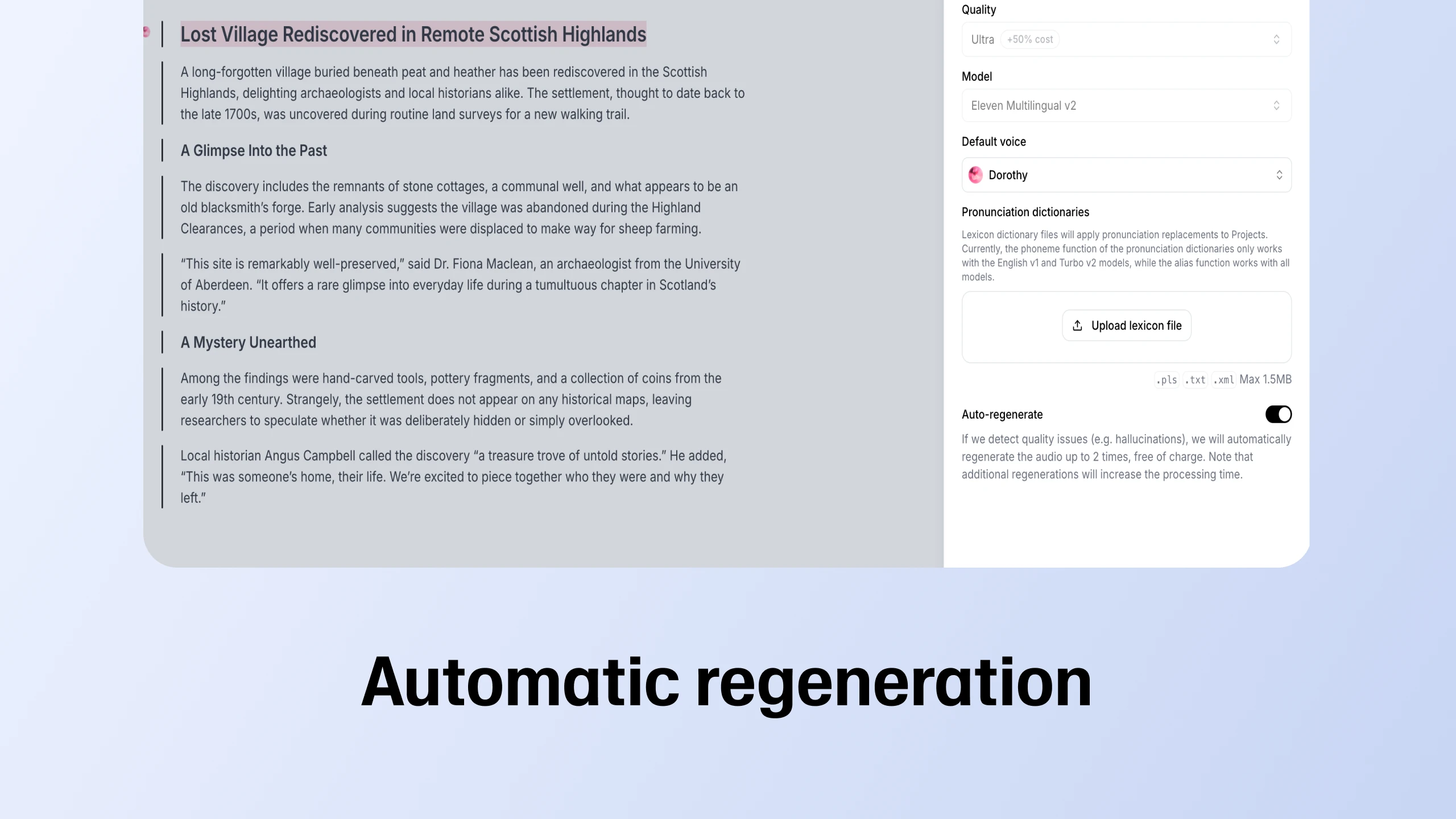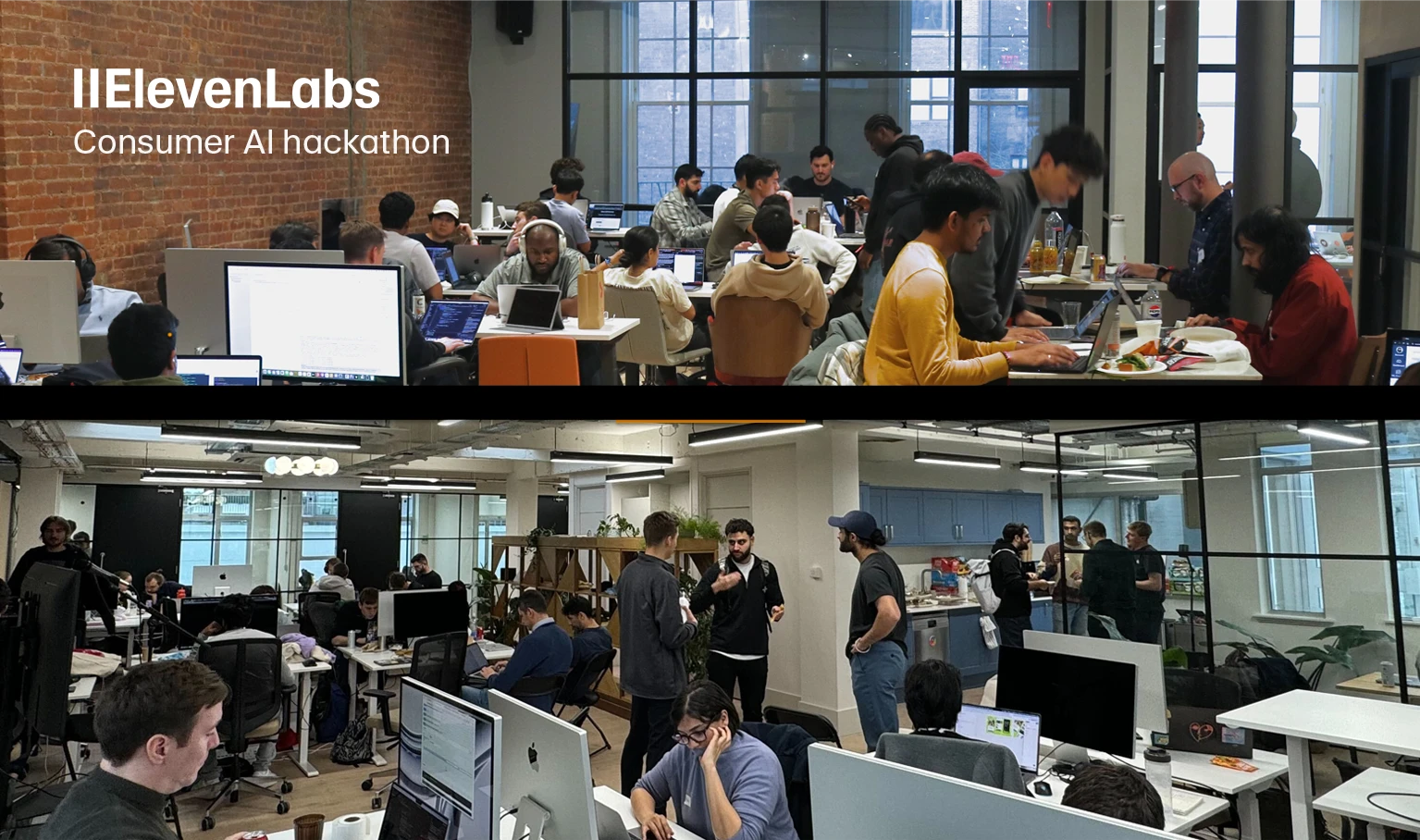
Our AI text to speech technology delivers thousands of high-quality, human-like voices in 32 languages. Whether you’re looking for a free text to speech solution or a premium voice AI service for commercial projects, our tools can meet your needs
As AI technologies like voice cloning and procedural generation become pivotal in game development, the industry stands at a crossroads: Will these innovations enhance developer creativity or threaten their roles?
Video game development is one of the most exciting creative industries. And for years, creatives have been confident that AI won’t be able to take their jobs. Capable of automating routine processes? Sure. But can it create entire worlds and storylines that keep gamers coming back for more?
It just might.
This article analyzes whether AI will replace video game developers, outlining what game developers do, how AI is changing game development, and what the future holds in store.
Video games go through several phases before they’re available to buy. The journey from a developer’s idea to a packaged game can take up to five years and involves hundreds of people.
A developer’s role is to oversee this process through pitching, making, and testing the game. Developers collaborate with designers, programmers, and publishers to achieve the best results.
As well as the conceptual and creative tasks, game developers have to do a lot of iterative work—creating prototypes of characters or environments that are then tested, analyzed, and refined. This is the bit that takes the most time, and where AI comes in especially handy.
Since most studios work on several titles at once, development efficiency is a vital component of a competitive studio. Here are 4 key ways developers are working with new AI tools to streamline their workflow and release more games with a chance at success:
Games without adequate planning run over budget, miss deadlines, and can contain hundreds of bugs. This can lead to projects being canceled, and studios missing out on big deals.
AI can help with the planning stage by analyzing vast amounts of player data to quickly workshop various storylines. For instance, Minecraft’s developers used AI-driven procedural generation to plan new storylines that responded to past player behavior.
An extremely time-consuming part of the game development process is hiring voice actors to record character voices. However, with innovative AI tools like ElevenLabs’ Voice Cloning software, this can be cut down from months to minutes.
Listen to how this sounds below.
Glinda's original voice
Glinda's AI voice
AI voice cloning works by taking a speech sample from a human and reproducing a synthetic version. Once the software has created the new voice, it can be fine-tuned until it perfectly fits the game maker's requirements.
Essentially, this creates a whole new voice actor, but with no limits on how much audio they can produce. This software has the potential to generate hundreds of distinct, lifelike characters which enhance the realism of any game.
Give ElevenLabs’ voice cloning capabilities a try for free today.
AIs can generate visual and audio content that has to be seen to be believed. AI character generation can create a host of NPCs with a diversity of looks that closely imitate real life.
It can also be used to automate the building of landscapes, buildings, and towns. This increases a game’s capacity for different locations, providing players with a world where there is always more to explore.
For developers, the least interesting phase of creating a new game is ‘iterative design’: creating a prototype, testing the prototype, analyzing, and refining it - a time-consuming process that requires little creativity.
AI can automate this process - detecting bugs and glitches a lot quicker than manual testing, requiring fewer hours and less labor for studios. Additionally, AI can simulate virtual users to test various gameplay strategies and styles, ensuring a well-rounded game.
However, this does create a genuine threat to the jobs of Quality Assurers, who would usually manually check a game for faults.
Automating iterative processes means developers can save their energy for the qualities they bring to the table: creativity, expertise, and collaborative communication with their team.
AI can generate reactive NPCs, dub text into many languages, create otherworldly scenery, and help finetune lifelike characters. Therefore, it will likely lead to job losses at the lower levels of the profession—but there will still need to be a human touch to oversee the game’s development and steer the AI’s output.
Here’s how we predict AI will transform every aspect of the game development process
Using Natural Language Processing (NLP) algorithms, AI is being trained to understand player input and generate dialogue that responds appropriately. For example, Ubisoft is developing an AI-driven ghost-writer tool that can generate ten times more ‘barks’ (simple, short lines of dialogue spoken by NPCs) than traditional development procedures.
Procedurally generated AI voices can be hyper-realistic. Check out ElevenLabs’ Voice Library to get a sense of the range of customizable, professional-quality voices on offer. Or, listen to a couple of voices in action below.
Bill Oxley voice
Rachel voice
What makes game developers unique is their ability for storytelling. They can create a compelling narrative in an enchanting world, filled with engaging characters whose emotions seem true to life.
While AI can’t understand human emotions, it can process vast volumes of history’s best stories—from Alice in Wonderland to The Picture of Dorian Gray—and learn what these tales have in common.
So, it wouldn’t be a shock if AI is soon able to produce stories that can move, inspire, and enchant us.
Coding is the backbone of game development, involving the technical implementation of game designs using programming languages.
With the advent of AI pair programmers like GitHub Copilot, developers can streamline coding processes. These AI systems suggest code snippets and logic implementations, reducing the manual coding workload and potentially decreasing the occurrence of bugs. This assistance can be particularly valuable in refining game AI and physics engines.
The potential for AI-generated Live Operations (LiveOps) heralds a whole new level of interactivity for gamers. Events, challenges, and rewards will be able to be developed with AI in real time, creating games with the potential to surprise the player at every turn. Another tool in the works is user-generated content - where players will be able to create new levels, objects, game modes, and characters while in the game.
Art production is crucial as it covers the creation of all visual elements in a game, such as characters, environments, and animations.
AI tools can revolutionize this element by automating routine tasks like texturing and shading, allowing artists to focus on more creative aspects of game art. AI-driven procedural generation technologies can produce diverse and complex 3D models and landscapes, dramatically reducing the time and effort required in crafting detailed game worlds.
AI voice synthesis can assist with auditory experience too. It can perform voiceovers and dialogue, offering extensive customization of tone, emotion, and accent, which provides a rich auditory layer without the need for extensive human input.
Test out ElevenLabs’ super-customizable voice design text-to-speech tool for free.
Is AI currently perfect? No. Is it getting better by the day? You bet.
AI is already transforming the game development industry. The likelihood is that it will continue to have an even greater impact moving forward, and that many lower-level developers will be replaced. However, we imagine that there will still need to be some people to take charge of the game’s overall development and set the vision.
Ready to learn more about how ElevenLabs’s tools can enhance your game development process? Check out the Voice Library and Text-to-Speech tool for great character voices, Dubbing for localizing games, and Text-to-Sound Effects to create your own sound effects.
Get started with ElevenLabs today.

Our AI text to speech technology delivers thousands of high-quality, human-like voices in 32 languages. Whether you’re looking for a free text to speech solution or a premium voice AI service for commercial projects, our tools can meet your needs

Our long form text editor now lets you regenerate faulty fragments, adjust playback speed, and provide quality feedback

Developers brought ideas to life using AI, from real time voice commands to custom storytelling